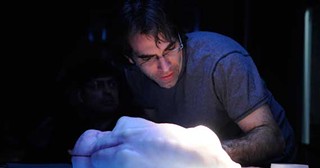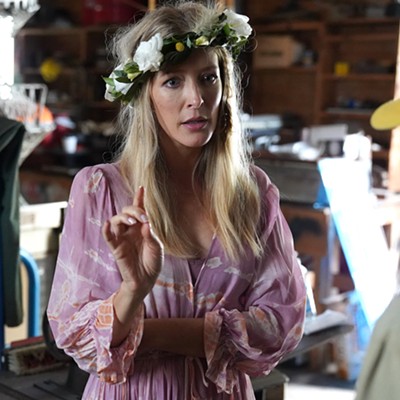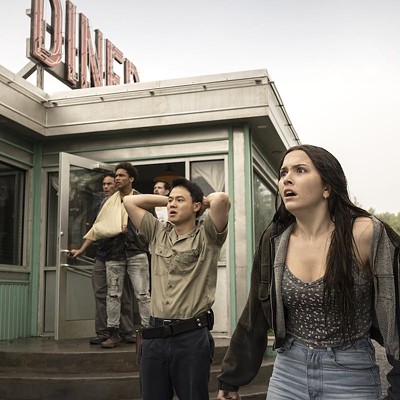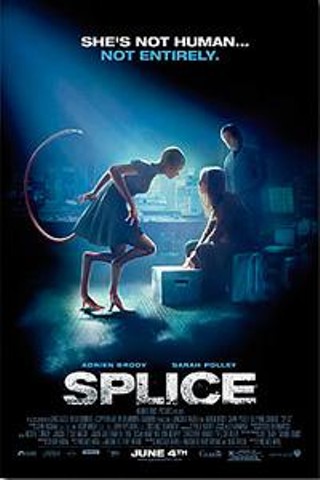"Splice very self-consciously owes a debt to many films," says director Vincenzo Natali of his movie, which opens this week. Splice stars Adrien Brody and Sarah Polley as rebel geneticists, specializing in combining various animal DNAs to create new life-forms in the name of science and medical technology. Eventually their curiosity gets the better of them, and they splice together human and animal DNA, creating Dren (Delphine Chanéac), a hybrid creature that evokes in the pair as many feelings of parental instinct as it does outright horror during its brief, hell-raising life.
So which films does Splice owe a debt to? "Not the least of which are the original James Whale Frankenstein movies," says Natali, who co-wrote with Antoinette Terry Bryant, over the phone. The main characters of Splice, Brody's Clive and Polley's Elsa, are named for the actors that inhabited Henry Frankenstein and The Bride of Frankenstein. "And I'm sure," he says, "that if you looked, you'd see a little bit of David Cronenberg DNA. Listen, I grew up with his stuff and there's no question that once you enter the realm of bio-horror, that terrain is trademark Cronenberg."
Splice is significantly Cronenberg-esque in its cold, detached style, refusing to indulge in any ostentatious design or camera moves, or even emotional displays. It doesn't express an opinion on the morality of Clive and Elsa's actions. (It's also Toronto-set and features an instance of out-there sex.) Natali says the more clinical elements weren't necessarily a conscious choice, but merely a benefit of producing the film independently, and not feeling any pressure to editorialize on their story.
"There's tremendous fear in the film industry about whether an audience will be emotionally connected with the main character or characters and very often, one is pressured to make them sympathetic," Natali says. "But I don't think that's necessarily what an audience wants. If you think about a movie like Raging Bull, there's nothing sympathetic on its surface about Jake LaMotta, but we are drawn to him because he's a compelling character. That's what it's about.
"I like ambiguity. I like it as an audience member and as a filmmaker. All of my movies end with a question. They're always open for interpretation. I mean, there's no question that Clive and Elsa have strayed from the past, they've done some things they shouldn't have done, but I like that the film doesn't get on a soapbox and doesn't preach to the audience, probably because that feels so unnecessary to me. There's an element of Greek tragedy to the film---clearly there's some Oedipal things going on! I always thought it was a tragedy and, of course, like any Greek tragedy, we must have tremendous pathos."
And yet, for Natali, the film remains deeply personal, in the sense that the storyline comments on his life while not directly reflecting it. Much like his breakthrough 1997 feature Cube, written with his then-roommate, spoke to their close quarters and feelings of claustrophobia.
"I really relate to Clive and Elsa and their dilemma," he says. "They created this thing and it becomes sort of their child and that really resonated with me personally. It's all my fears of parenthood! At the end of the day, Splice is about taking responsibility for the things you make."















